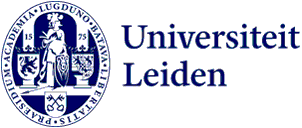
Five years of ‘Meet the Professor’: What’s it like to give a lesson at a primary school?
For the fifth year in succession, on the foundation day of the university, a number of Leiden professors taught a lesson at primary schools as part of the ‘Meet the Professor’ programme. Ruurd Halbertsma and Ingrid Tieken-Boon van Ostade have taken part since the first year. What lessons do they remember most?
When Professor Ruurd Halbertsma (Curator at the National Museum of Antiquities) looks back at his five ‘Meet the Professor’ lessons, one particular occasion comes to mind. ‘I remember very well going to a primary school where almost all the pupils were from a migrant background. The children were delighted that something fun and unexpected was happening. In my academic gown, I told the children about classical antiquity and I had the full attention of all of them. Afterwards, they wanted a photo with me. I found it very heart-warming.’
Professor Ingrid Tieken-Boon van Ostade (Historical Sociolinguistics) remembers one very special class visit. ‘I gave a talk on the Sayings Route in The Hague, a route with a selection from the many languages that are spoken in The Hague. The class listened to different languages and when we got to Sranan tongo, a Surinamese language, there was a loud cheer: that was one language the children could understand!’
No two occasions are the same
Both these professors are very creative with their lessons, so each occasion is different. Tieken-Boon van Ostade: ‘I always give a different lesson, and I always get the children to do a task. During a lesson about Jane Austen I taught them how to fold eighteenth-century letters.’ Halbertsma: ‘I give the same lesson every year, but I adapt it to where the children live and their experiences. If I teach a lesson on Romans in the Netherlands, for example, I’ll talk about the local history of Leiden or Leiderdorp.’
-

Professor Jessica de Kiefte in the classroom. -

Professor Rick Lawson in the classroom. -

Professor Jessica de Kiefte in the classroom. -

Rick Lawson is awarded a special badge. -

Special Meet the Professor badge.
Tips for a successful class visit
Both professors have some tips for anyone who wants to take part in ‘Meet the Professor’. Tieken-Boon van Ostade believes it is good to wear your academic gown during the lesson. ‘The children love that. I let them into the little secret that I wear a pearl necklace under my gown, which nobody can see.’ Halbertsma thinks it’s good to take something with you. ‘I always take an object with me, such as a replica of a museum artefact. I can then use the object to delve deeper into my specialist field.’
Both professors stress the importance of lessons about science and research at primary schools. ‘It’s good that children learn what science is and what a university is, and that they know that they themselves can also go to university,’ Tieken-Boon van Ostade says. Halbertsma agrees. ‘Introducing primary school children to scientific research can sow seeds that will flourish later in life.’
In class with Rick Lawson and Dirk Visser
Along with Ruurd Halbertsma and Ingrid Tieken-Boon van Ostade, two more professors celebrated their fifth year in the ‘Meet the Professor’ programme: Rick Lawson (European Law) and Dirk Visser (Intellectual Property Law). The news editors joined them in the classroom.
Professor Rick Lawson visited group 7a at the Oranje Nassau school in The Hague this time, and gave a lesson on children’s rights. He used two specific cases to discuss just and unjust punishments for children and rules that apply to children. The children wanted to know if there are rules that benefit children but not parents. Lawson had a satisfactory answer to that: 'Children have a right to free time, rest and holidays. That’s something you can say when you’re told to clean your room!’
Professor Dirk Visser visited group 8a at the KC Balans school in The Hague and gave a lesson on the laws that apply on the internet. He presented the children with a dilemma: ‘If someone copies you on TikTok, doing exactly the same dance for example, what do you think of that?’ ‘On the one hand it’s imitation, but on the other hand the dance can also become a trend,’ said the children. One pupil wanted to know how long it takes to become a professor. Visser: ‘Before you can become a professor, you have to obtain your PhD. For that you have to write a thick book on a difficult subject.’ After the lesson, Visser said he was really happy to hear these kinds of questions. ‘I try to be flexible because otherwise I’d miss these kinds of pearls from the children.’
-

Professor Dirk Visser in the classroom. -

Professor Dirk Visser in the classroom. -

Professor Anne Marie Oudesluys-Murphy in the classroom. -

Professor Dirk Visser in the classroom.
In recognition of their five-year participation, Halbertsma, Tieken-Boon van Ostade, Lawson and Visser were presented with a Meet the Professor badge from the Science Hub (in Dutch).
Text: Esther Bügel
Photos: Patrice Börger and Ehlana van Roijen
